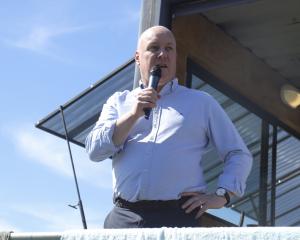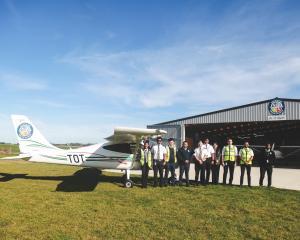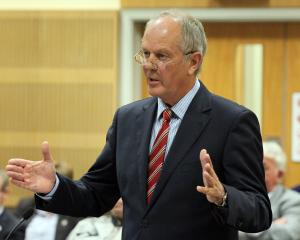
Vice-chancellor Grant Robertson spoke to the Otago Daily Times yesterday about his plans to create a "strong and permanent presence" in the resort town with a keen focus on technology.
"Queenstown want to set themselves up as a technology hub, as a centre for innovation.
"I think we have quite a unique offering here in that rather than the university coming to town and saying, ‘hey, here’s our programme. Would you like to do it?’, we’re actually getting alongside the community and saying, ‘what can we develop with you that is going to fulfil a need here?"’
Mr Robertson said some scoping had been done with the approval of the university council, but the cost of such a project was still being worked on.
"In terms of how much we put in up to now, it would be in the tens of thousands of dollars."
There had been discussions with mana whenua, the Queenstown Lakes District Council and Technology Queenstown.
"We’re looking to do every part of this as a partnership. We’re not just thinking that we can do this on our own.
"What’s special about Queenstown is it’s a gathering place for global talent," he said.
Pro-vice chancellor sciences Prof Richard Barker said the university wanted to build on previous work, which included the delivery of rural medical training based out of Central Otago and the university’s relationship with Queenstown Resort College.
However, the notion of partnership for infrastructure and curriculum was "a completely novel thing for the university".
"We would only be interested in partnering with people who have got the same sorts of time horizons that we have. So they’re in it for the long haul; they’re not going to turn it back in five years.
"These are people who are in it for 50-plus years."

Partners would likely include "global technology firms".
"We are looking at a pretty unique offering here that might be more based around shorter course programmes.
"But it’s not just an international play, because we can pull international experience into what we’re offering at Queenstown that our domestic students can get access to that they couldn’t otherwise."
Mr Robertson said there would be hurdles in establishing the campus, ranging from Queenstown’s infrastructure to housing shortages.
These would have to be addressed, but he was confident of finding solutions.
"So we would be looking for development in partnership to provide that accommodation. We cannot put the pressure on the existing stock of housing in Queenstown, because it would be irresponsible," he said.
He was "excited" about the possibilities.
"We go into this wanting to uphold the standards and reputation of the university and enhance it."
Technology Queenstown founder Roger Sharp said the announcement was "great news" for the Queenstown Lakes district.
"It’s stemmed from thinking I had during the pandemic, where we saw the effects of having a local economy which was close to being a one-trick pony with its focus on tourism.
"This announcement signals a step change for the district. If the university can build the right ecosystem, then we could see a real focus on technology in the future.
"There’s a lot of work to get there, but I’m confident we could see the results within the next five years."











